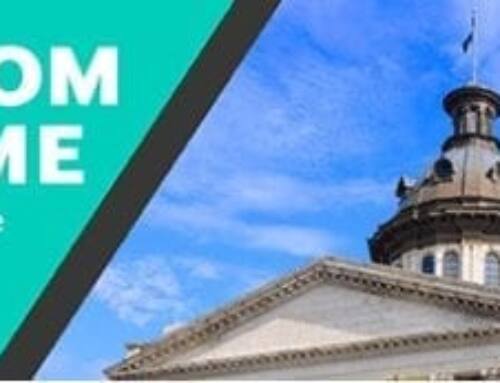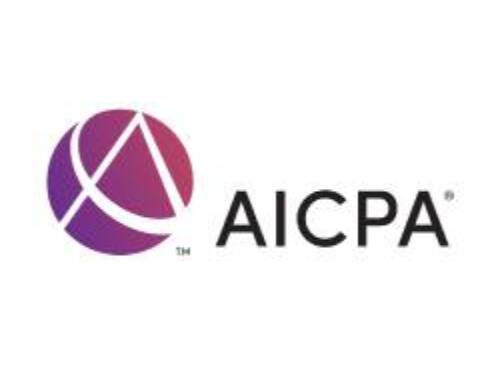Friday, Oct. 9, 2020
Several court decisions impact the November elections and federal CARES Act funds.
The Joint Bond Review Committee (JBRC) received an update on the expansion of broadband in South Carolina.
JOINT BOND REVIEW COMMITTEE
The Joint Bond Review Committee (JBRC) met on Tuesday. The JBRC is comprised of Senate and House members and is authorized to approve various capital projects. The committee approved a number of capital improvement projects and several leases for state agencies.
The committee also heard a report from the Broadband Oversight Subcommittee. This subcommittee was recently created to begin assessing federal CARES Act funds to expand broadband access in rural areas. Nanette S. Edwards, Executive Director of the SC Office of Regulatory Staff (ORS), which oversees broadband regulation, gave an update on hotspot procurement and distribution and progress on connecting students to broadband where possible for online learning. She noted the state is spending $1.5 million monthly for the service. Edwards also reported ORS continues working with a contractor on the state’s broadband mapping project and said vendors have until Oct. 16 to comply with the survey. She said they estimate that they have over $10 million in broadband deployment funds that remain uncommitted and must be spent by Dec. 31.
JBRC Chairman Senator Hugh Leatherman (R-Florence) told Edwards he did not want the state to leave any federal funds unspent and urged ORS to work closely with broadband providers to utilize all available funds. A 50/50 match is required of broadband providers to expand service areas.
The committee will meet again Dec. 1. The video archive of the meeting is here.
CARES ACT AUTHORIZATION
The South Carolina Supreme Court struck down Gov. Henry McMaster’s SAFE grants program on Wednesday. It would have allowed funds the state received from the federal CARES Act to assist with tuition costs at private schools.
In the unanimous ruling, the court stated that Gov. McMaster’s allocation of millions of dollars to support the SAFE grants program constitutes the use of public funds for the direct benefit of private education institutions, which is prohibited by the South Carolina Constitution. The program would have allocated $32 million in funds to private school tuition in the form of grants paid to families to help offset tuition for private and parochial schools for low-income families. In response to the ruling, Gov. McMaster stated he remains committed to providing educational opportunities for lower-income families and families with special needs at public and private kindergartens, schools and colleges. He went on to add this decision may also place in jeopardy millions of CARES Act dollars appropriated by the General Assembly to directly reimburse independent private colleges and HBCUs. Gov. McMaster said he will ask the court to reconsider its ruling.
To read the opinion, click here.
ELECTIONS
The United States Supreme Court reinstated a requirement on Monday that South Carolina residents voting by mail in November’s election get a witness signature on their ballots. Democrats had sought to have the requirement put on hold because of the Coronavirus pandemic, but Republicans had defended it as deterring fraud. The court ruled that any ballots cast before the court’s action Monday evening “and received within two days of this order may not be rejected for failing to comply with the witness requirement.”
South Carolina has had a witness requirement for absentee voters since 1953. Under the current law, voters returning mail-in ballots swear an oath printed on the return envelope that confirms they are eligible to vote and that the ballot inside is indeed theirs, among other things. The oath must be witnessed by one other person who has to sign below the voter’s signature and include their address. Pointing to the Coronavirus pandemic, state and national Democratic Party organizations had challenged the requirement and other parts of state election law.
CORONAVIRUS
Health officials announced this week that South Carolina has the lowest COVID-19 transmission rate in the country. The COVID-19 transmission rate shows how quickly the virus is spreading among people. For details, click here.
To view all the governor’s previous Executive Orders, click here.
accelerateSC is a one-stop website to help businesses and citizens connect to important information during this crisis.
For information from SC DHEC on the virus, click here.
COVID-19 Screening & Testing Sites
The Emergency Management Division provides links to important information, including the SC Department on Aging, SC Childcare, the SC Department of Employment and Workforce, the Department of Revenue and the SC Department of Insurance.
South Carolina Department of Commerce for small business information and assistance.
For additional resources that may be beneficial to your organization’s recovery efforts, visit Haynsworth Sinkler Boyd’s COVID-19 Resources page. Copper Dome Strategies is a subsidiary of HSB.
South Carolina Health Alert Network
South Carolina COVID-19 Emergency Supply Sourcing & Manufacturing
UP NEXT
The Board of Economic Advisors will meet on Thursday. The General Assembly has no plans to return to Columbia. We will keep you apprised of any legislative activity.
REARVIEWS 2020
Thank you for following SCACPA’s ‘The View from the Dome’ for State House Developments on Tax Issues Through SC’s 2020 Legislative Session. Here is a review of our weekly updates in 2020.
Jan. 10: South Carolina’s Pending Tax Bills and Your 2020 Legislative Preview
Jan. 17: Gov. McMaster’s Executive Budget Calls for Tax Cuts, Rebates for Taxpayers
Jan. 31: House Subcommittee Hears Budget Request from SC Chief Justice to Improve Case Management System
Feb. 7: Senate Finance Committee Approves Business Personal Property Bill for DOR Filing
Feb. 14: Board of Economic Advisors Announces Largest Budget Surplus in SC History
Feb. 21: House Floor Debate is Up Next for Budget After Ways and Means Committee Plan Adopted
Feb. 28: House Members Have Upcoming Week to Study Budget Before Floor Debate
March 6: Education Reform Bill Moves from Senate to House; DHEC Tells of Coronavirus Resources
March 20: A Look Inside the $45M COVID-19 Relief Package for DHEC; Return of Legislators is on Hold
March 27: Legislative Session Remains Postponed; Candidate Filing Period Ends on March 30
April 17: McMaster Announces ‘Accelerate South Carolina’ Revitalization Plan, Details to Come
April 24: accelerateSC Revitalization Task Force Goes to Work
May 1: General Assembly Set to Return to State House on May 12
May 8: Gov. McMaster Announces that Indoor Dining in SC Can Resume on May 11
May 29: Gov. McMaster Will Now Review accelerateSC Committee’s Final Recommendations
June 12: Gov. McMaster Recommends Disbursal of $1.9B Coronavirus Relief Fund in Two Phases
June 19: Senate Finance Committee’s Plan for CARES Act Funds Includes $500M for Unemployment Trust Fund
June 26: $1.2B in Federal CARES Act Funding is Authorized
July 10: accelerateED Task Force Offers its Guidance for 2020-21 School Year
July 31: Board of Economic Advisors Anticipates SC’s 2019-20 Surplus as $220M
Aug. 7: Legislative Committees Discuss Regulatory Relief, Broadband Access and Testing Efforts
Aug. 14: Joint Bond Review Committee Approves Highway Projects, Seeks More Funds for Rural Broadband
Aug. 21: Gov. McMaster Urges Cabinet Agencies to Maintain Funding Levels from Continuing Resolution For Now
Aug. 28: Comptroller’s Office Announces $350M Surplus for FY 2019-20
Sept. 4: Latest BEA Projection is $775M in One-Time Surplus Revenue
Sept. 25: General Assembly Adopts Tax Conformity Legislation, Awaits Governor’s Signature
Oct. 2: McMaster Signs Bills for Conformity, Business License Tax Standardization into Law
To keep up with the latest news of SCACPA Advocacy, turn to the SCACPA Blog and our social media outlets.


